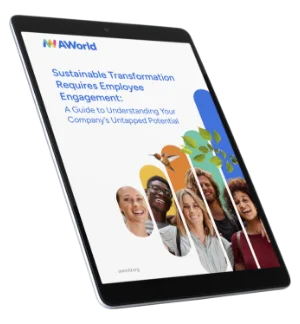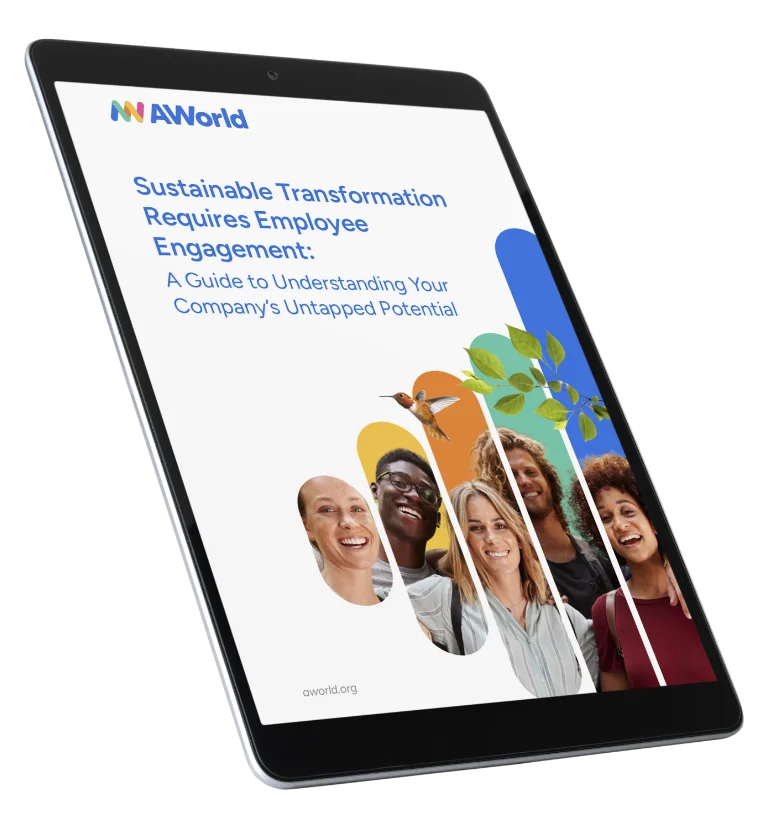In our fast-paced and ever-evolving world, the pursuit of sustainability has emerged as an urgent and essential goal for companies spanning diverse industries.
As the global community increasingly recognizes the significance of environmental responsibility, businesses are acknowledging the need to integrate sustainable practices into their operations. Embracing greener initiatives not only helps preserve our planet but also presents substantial advantages for companies themselves;, including cost savings, an enhanced brand reputation and improved employee morale.
Let us explore the myriad benefits your company can reap by embracing a sustainability initiative, delving into the precise means through which this can be accomplished.
Table of Contents
- Why is it crucial for companies to kickstart sustainability projects?
- How can a company move towards green business strategy?
- Incentives for green companies: how to take advantage of them
- Leading the way: three companies setting the sustainability standard
- VMware and the sustainable transition with AWorld
Why is it crucial for companies to kickstart sustainability projects?
Embarking on transformative corporate sustainability improvement projects offers a multitude of compelling rationales for businesses like yours to embark on this transformative journey. Allow us to take you on an exploration of the fundamental drivers that inspire companies to wholeheartedly embrace sustainability. As you explore into the following motivations, envision the profound impact your organization can have:
- Environmental stewardship: as responsible corporate citizens, companies bear the responsibility of minimizing their environmental footprint and safeguarding precious natural resources. By implementing sustainability projects, your business can effectively reduce greenhouse gas emissions, conserve vital water and energy resources and play a pivotal role in preserving biodiversity for future generations.
- Cost savings: sustainability and resource efficiency go hand in hand, yielding substantial long-term cost savings. By embracing energy-saving technologies, optimizing supply chains and minimizing waste generation, your company can unlock significant operational efficiencies, bolster profitability and fortify its financial performance.
- Regulatory compliance: governments and regulatory bodies are intensifying their focus on stringent environmental regulations and standards. By proactively initiating sustainability projects, your organization can ensure compliance, minimize the risk of penalties or legal issues and reinforce its reputation as a responsible industry leader.
- Brand reputation and customer loyalty: today’s consumers place great emphasis on the environmental and social impact of their purchasing decisions. By showcasing a steadfast commitment to sustainability, your company can elevate its brand reputation, gain a competitive edge and attract environmentally conscious customers who value ethical business practices.
- Employee engagement and retention: sustainable initiatives resonate deeply with employees, particularly the younger generation driven by a passion for positive change. By prioritizing sustainability, your organization can inspire and engage its workforce, foster a sense of purpose, attract top-tier talent and cultivate a vibrant culture of innovation and collaboration.
- Access to new markets and partnerships: embracing sustainability opens doors to new market opportunities and fruitful partnerships. Governments, investors and organizations increasingly prioritize working with sustainable businesses, granting access to funding, collaborative ventures and avenues for market expansion.
- Long-term resilience: building resilience against environmental risks, supply chain disruptions and shifting consumer expectations is paramount to long-term business success. Sustainability projects empower your company to future-proof its operations, identify vulnerabilities and adapt adeptly to evolving market dynamics.
- Social responsibility: sustainable initiatives extend beyond environmental impact and encompass critical aspects of social responsibility, such as fair labour practices, community engagement and ethical sourcing. By ingraining these values within your operations, your company can actively contribute to society, promote inclusivity and instil a profound sense of purpose among stakeholders.
How can a company move towards green business strategy?
Achieving a green business strategy is a goal many companies aspire to. Now that we have explored the numerous benefits of embarking on a sustainable path, the question arises: how can organizations effectively transition towards sustainability? The following ideas provide practical steps to make your company more sustainable, but it is essential to remember that long-term success lies in taking it one step at a time.
Promote the 3 Rs
Encourage your team to reduce, recycle and reuse. By adopting these practices, your company will not only gain a competitive edge in sustainability but also significantly reduce its carbon footprint.
Switch to hybrid work
Embracing a hybrid work model allows employees to work from home more often, reducing pollution associated with commuting and promoting energy conservation.
Encourage the use of public transport
Encourage alternative means of transportation by providing incentives such as vouchers for public transportation and prompting employees living near the office to walk or bike to work.
Minimize printing
With the advent of digitization, printing documents is often unnecessary. When printing is unavoidable, opt for double-sided printing to conserve paper.
Transition to green and reusable energy
By shifting to renewable energy sources, your company can decrease reliance on fossil fuels, reducing its environmental impact and supporting a cleaner future.
Provide reusable water bottles
Supplying employees with reusable water bottles promotes sustainability, reduces single-use plastic waste and encourages hydration without harming the planet.
Create a greener kitchen
Opt for eco-friendly utensils, appliances and sustainable food choices in your office kitchen to minimize ecological footprints and cultivate a greener workplace.
Implement zero-waste bathroom solutions
Introduce compostable or reusable bathroom products to eliminate waste, embrace circular economy principles and contribute to a healthier environment.
Choose clean products
Prioritize environmentally friendly and non-toxic products for office supplies, cleaning agents and materials to protect human health and the planet.
Educate employees
Conduct sustainability training programs to raise awareness, empower employees to make eco-conscious choices and foster a culture of environmental responsibility.
Implement water conservation measures
Adopt strategies like installing low-flow fixtures and implementing water-saving practices to reduce consumption and preserve this valuable resource.
Consider a BYOD policy
Encourage employees to utilize their personal devices for work, reducing electronic waste, energy consumption and fostering a sustainable digital workplace.
Conduct regular energy audits
Periodically assess energy usage to identify inefficiencies, implement targeted energy-saving measures and promote energy-conscious practices.
Support and partner with environmental organizations
Collaborate with nonprofits and environmental groups to foster collective efforts towards conservation, sustainability and positive environmental impact.
Spread the word
Share sustainability achievements and initiatives both internally and externally to raise awareness, inspire others and amplify the message of sustainability for a broader positive influence.
Incentives for green companies: how to take advantage of them
Governments worldwide recognize the crucial role that businesses play in achieving sustainable development. To encourage companies to adopt greener practices, governments offer a range of incentives that vary from country to country. These incentives are designed to support and reward organizations for their commitment to sustainability. Here are some examples:
- Subsidies for the installation of solar power systems or other renewable energy sources
- Tax breaks for adopting low-impact technologies or reducing carbon emissions
- Subsidized financing for energy efficiency projects, such as thermal insulation of buildings or upgrading electrical systems
- Tax credits or subsidies for the purchase of electric or hybrid vehicles for business use
- Support programs for the development of sustainable products or services, such as innovation in renewable energy or reducing the environmental impact of packaging materials.
To leverage government incentives for corporate sustainability, a thorough understanding of the available incentives in your country is essential. Conduct comprehensive research to identify the specific incentives and requirements. Evaluate your company’s eligibility and gather the necessary application documents accordingly. It is crucial to adhere to the instructions provided by the relevant authorities, meet application deadlines and ensure all required information is included.
Once the incentive has been obtained, it is vital to fulfil any associated obligations or conditions outlined by the program. Monitoring compliance with established obligations is key to maintaining eligibility and maximizing the benefits of the incentive. For expert guidance in the application and submission process, it is advisable to directly contact the competent authorities or seek specialized advice to navigate the complexities effectively.
Leading the way: three companies setting the sustainability standard
When it comes to embracing sustainability, it’s natural to feel overwhelmed. But let me reassure you: achieving long-term sustainability is within your reach. To demonstrate this, let’s take a look at three remarkable companies that have successfully integrated sustainability into their operations, step by step. Their journeys can serve as guiding lights for your own sustainable transformation.
Patagonia
As a global leader in outdoor clothing and gear, Patagonia (link) has become a beacon of sustainability. They prioritize environmental and social responsibility by implementing various initiatives. These include using recycled materials, supporting fair trade practices, minimizing waste generation and championing environmental causes. Patagonia showcases how a strong commitment to sustainability can be deeply ingrained in a company’s core values and operational practices.
Interface
Interface, a prominent modular carpet manufacturer, has made remarkable strides in sustainability. Setting ambitious goals to achieve zero environmental impact by 2020, they have demonstrated their dedication to sustainable practices. Interface focuses on reducing greenhouse gas emissions, recycling materials and implementing sustainable manufacturing processes. Their success highlights how a manufacturing company can prioritize sustainability through innovation and collaborative efforts.
Unilever
Unilever, a multinational consumer goods company, has made sustainability an integral part of its business strategy. Through ambitious targets, they aim to reduce their environmental impact and contribute to social well-being. Unilever’s sustainability initiatives encompass sustainable sourcing of raw materials, waste reduction, packaging optimization and community development support. Their commitment exemplifies how even large corporations can adopt sustainable practices and make a significant positive impact on a global scale.
VMware and the sustainable transition with AWorld
VMware, a leading provider of multi-cloud services, stands out as a company that has successfully integrated sustainability into its business processes. Their unique approach lies in focusing on employee engagement and individual action, recognizing them as crucial elements for fostering a lasting transition towards sustainability. So, how exactly did they achieve this?
The key lies in actively involving their employees in the sustainability journey, making them essential drivers of change. VMware utilized AWorld, a sustainable platform handpicked by the United Nations for their Act Now campaign against climate change. By downloading and joining AWorld, employees gained access to educational content, received valuable tips on adopting more sustainable habits and lifestyles and could even use a carbon footprint calculator to understand their environmental impact.
But the journey didn’t stop there. With AWorld, VMware took it a step further by creating a united team comprising all employees and stakeholders. They launched engaging challenges aimed at increasing sustainability engagement. These challenges had personalized objectives, such as achieving specific water, energy, or CO2 savings or completing a set number of actions beneficial to the planet. The participating employees were fueled by healthy competition, motivated to accomplish the highest number of sustainable actions.
In the case of VMware, the challenge centered around reducing CO2 emissions. At the end of the challenge, AWorld provided a comprehensive report detailing the achieved results, including the number of completed Sustainable Development Goals (SDGs).

As a testament to their appreciation for their employees’ dedication, VMware decided to reward each participating employee by planting three trees on their behalf. The impact of VMware’s AWorld challenge was remarkable. Through the collective efforts of their employees, the challenge led to the planting of 5,000 trees and a savings of 62,159 kg of CO2. This not only contributed to VMware’s sustainability goals but also made a tangible positive impact on the environment.
By prioritizing employee engagement, leveraging innovative platforms like AWorld and rewarding their employees for their sustainability efforts, VMware has created a dynamic and interactive approach to sustainability. They have empowered their workforce to take meaningful action and contribute to a greener future. This not only aligns with their commitment to corporate responsibility but also reinforces a sense of shared purpose among their employees.
VMware’s success story serves as an inspiration to organizations aiming to integrate sustainability throughout their operations. By fostering employee engagement, utilizing innovative platforms and recognizing the contributions of their employees, companies can ignite a powerful sustainability movement within their own ranks. Together, we can create a more sustainable world, one step at a time.




